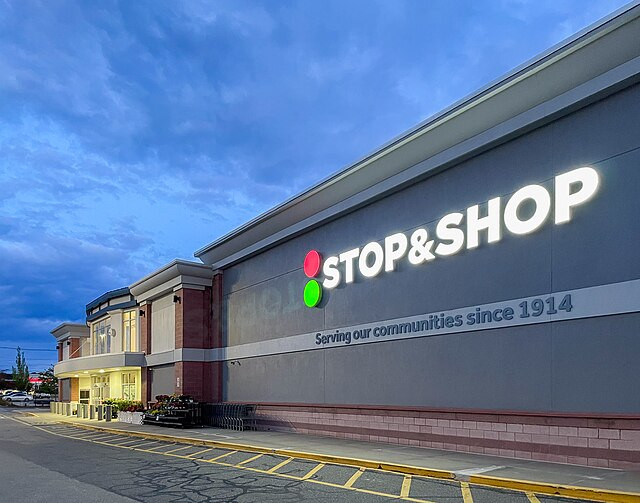Stop & Shop, a major grocery chain owned by Dutch conglomerate Ahold Delhaize, announced on Friday its decision to close 32 underperforming stores across the northeastern United States. This strategic move aims to bolster the company's financial performance amidst growing competition and rising inflation.
"Stop & Shop has evaluated its overall store portfolio and made the difficult decision to close underperforming stores to create a healthy base for the future growth of our brand," said Gordon Reid, president of Stop & Shop, in a statement.
The closures, set to occur in early November, span five states where the chain operates. Specifically, 10 stores in New Jersey, eight in Massachusetts, seven in New York, five in Connecticut, and two in Rhode Island will be shut down. This decision comes at a time when the grocery industry is undergoing significant changes, including the expansion of low-cost brands like Aldi, which plans to open 800 new locations, and the proposed $25 billion merger between Kroger and Albertsons, which the Federal Trade Commission is currently challenging.
Affected Locations and Broader Market Dynamics
Ahold Delhaize first hinted at potential store closures during an investor day in May but only recently provided specific details about the affected locations. The company assured customers and employees that they remain committed to serving communities through other operational stores, online shopping, and home delivery services. Employees impacted by the closures will be offered opportunities at other company locations.
The affected locations are as follows:
Connecticut:
- Ansonia, Danbury, Milford, Stamford, Torrington
Massachusetts:
- Brockton, Halifax, Newton, Pembroke, Raynham, Shrewsbury, Springfield, Worcester
New Jersey:
- Carlstadt, Edison (two locations), Franklin Township, Howell, Jackson, Phillipsburg, Piscataway, Point Pleasant Beach, Ringwood
New York:
- Brooklyn, Coram, East Meadow, Greenvale, Hempstead, Mt. Vernon, West Haverstraw
Rhode Island:
- Johnston, Providence (Eastside Marketplace)
Response and Strategic Adjustments
Stop & Shop, a 110-year-old chain, will continue to maintain a strong presence with more than 350 stores after the closures. The company has invested in remodeling about half of its stores since 2018, with these updated locations performing significantly better than those that have not been refreshed.
"[We're focusing on] delivering lower everyday prices and strong promotions," the company emphasized in a recent statement, addressing the competitive market pressures and consumer demand for better value.
Industry experts, such as Burt Flickinger of Strategic Resource Group, noted that shoppers pay between 12% to 14% more at Stop & Shop compared to other retailers, a factor that became more pronounced during the pandemic when inflation was soaring. This price disparity has driven consumers to seek cheaper alternatives, putting additional strain on Stop & Shop's market share.
Approximately 3,800 union workers represented by the United Food and Commercial Workers (UFCW) will be displaced by the closures. However, John T. Niccollai, president of Local 464A, which represents workers at 12 of the stores in New York and New Jersey, stated that the company does not plan to lay off any employees due to high turnover rates. Displaced workers will be offered positions at nearby locations to mitigate job losses.
"We continue to have a strong presence across our five-state footprint with more than 350 stores," Reid assured. The company's focus on improving value propositions and pricing strategies aims to retain customer loyalty and ensure long-term sustainability.





